News
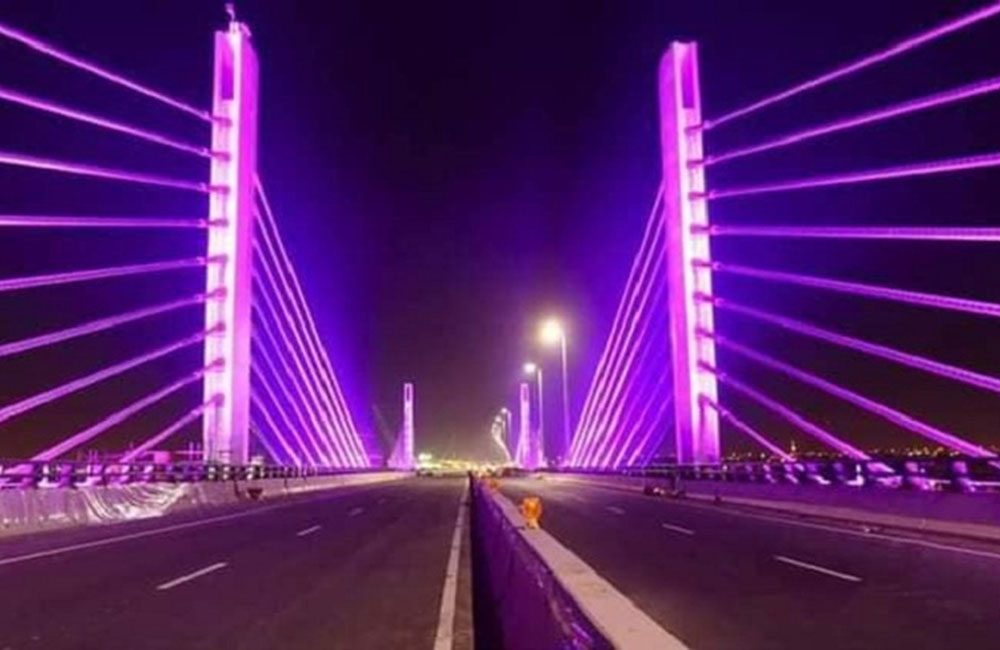
New Kelani Bridge to be closed in phases from tomorrow
The New Kelani Bridge, also known as the ‘Golden Gate Kalyani’ bridge, will be closed under three phases starting from tomorrow (Dec. 01), according to the Road Development Authority (RDA).
In a communiqué, the Ministry of Transport and Highways said that as construction work on the New Kelani Bridge has been completed, it has reached the point where all responsibilities related to the project have to be reviewed before releasing the contracted company and on some instances certain changes would be required to be carried out by the contractor.
The ministry said that even now the bridge can be used without any risks and it can continue to be used in such manner, however that they wish to carry out the process as per the stipulations in the contract.
Accordingly, the New Kelani Bridge is to be closed under the following three phases due to essential modernization activities while motorists are advised to use alternate routes during these durations:
Phase 01 - From 9.00 p.m. on December 01 (Friday) to 6.00 a.m. on December 04 (Monday)
Phase 02 - From 9.00 p.m. on December 08 (Friday) to 6.00 a.m. on December 11 (Monday)
Phase 02 - From 9.00 p.m. on December 15 (Friday) to 6.00 a.m. on December 18 (Monday)
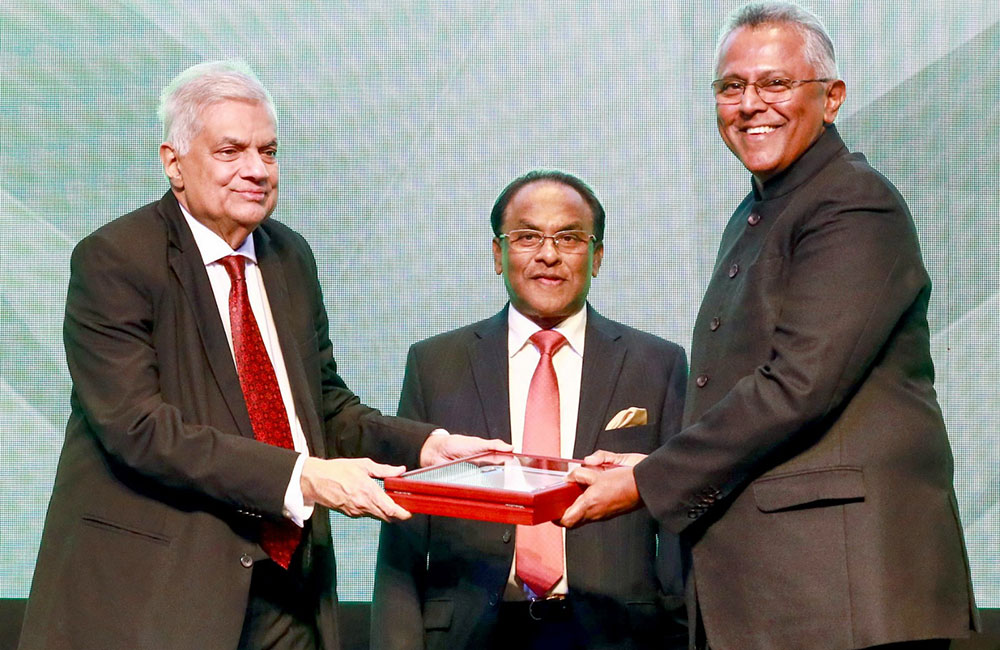
President outlines plans to make Colombo an Entertainment Hub
President Ranil Wickremesinghe has outlined a comprehensive strategy to propel Sri Lanka’s tourism sector to new heights.
Addressing the 58th Annual General Meeting of The Hotels Association of Sri Lanka (THASL) in Colombo yesterday (Nov 27), the President outlined plans for the transformation of Colombo into an entertainment hub.
The development of tourism infrastructure beyond traditional attractions was a key aspect of President Wickremesinghe’s address, where he emphasized the need for diverse activities to keep visitors engaged in Colombo.
“What do we do there? Very little. You go to a museum, it’s a short run. You go to Gangaramaya Temple. You look at the Independence Square and back. So what are we planning? It should be an area of entertainment, music or food. All the way up to the Independence Square, it will be a new area,” he explained.
Focused on surpassing the target of 5 million tourists and redefining traditional approaches, the President’s vision also extends to achieving 7.5 million visitors in the coming years.
The President emphasized the need for innovative thinking and collaboration within the industry to ensure sustainable growth.
“When I took over the government, I realized that sustainability alone is not sufficient. How are we going to earn foreign exchange? How are we going to have a positive balance of trade? In that, there were many suggestions. But what is the low-hanging fruit? And one of the low-hanging fruits was tourism. Let’s promote tourism fully,” President Wickremesinghe declared.
The President acknowledged the need to move beyond the existing framework and embrace competition to elevate Sri Lanka’s standing in the global tourism market.
Drawing parallels with countries like Vietnam, he questioned why they had more tourists despite being in the industry for a shorter period.
President Wickremesinghe stressed the importance of increasing the number of tourists to 2.5 million in the upcoming year and subsequently expanding on this figure.
Central to the President’s vision is the enhancement of the tourism product, where he urged the industry to specialize, tapping into the unexplored potential that Sri Lanka possesses.
Referencing historical practices during the Anuradhapura period, he highlighted the early roots of tourism in Sri Lanka and encouraged a nuanced approach to promotion.
“Look at our food. From one area to another. Have you utilized it? Let’s do that. We have to be special in many ways. You remember, tourism was not something that was new to us. It was there even in the time of the Anuradhapura period,” President Wickremesinghe remarked.
Acknowledging the role of hospitality in attracting and retaining tourists, the President emphasized the need for a comprehensive experience – encompassing accommodation, cuisine, and cultural offerings. He proposed the diversification and improvement of Sri Lankan cuisine, advocating for a fusion of local and international flavours to cater to diverse tastes.
The President highlighted the potential for collaboration with expatriates to enhance the industry further. Drawing attention to the success of boutique hotels initiated around 2003-2004, he underscored the significance of niche markets, citing golf tourism as an example.
President Wickremesinghe disclosed plans for the development of the Bogambara prison in Kandy into a hotel and a hotel school, showcasing the government’s commitment to utilizing available resources for tourism. He urged stakeholders to contribute ideas and support to implement these transformative initiatives.
Addressing the issue of minimum rates, President Wickremesinghe advocated for a shift towards higher rates, emphasizing the need for a quality product that justifies the cost. He encouraged the industry to think beyond conventional constraints and embrace a new mindset for achieving the ambitious target of 5 million tourists.
“In this new era, we need new thinking. We can’t get there with the old mindset. Just forget it and put it aside. Think of the new people who will come. Then we can achieve our five million,” President Wickremesinghe asserted.
The President concluded his address by expressing confidence in the industry’s ability to achieve the 5 million tourist target and urged stakeholders to aim higher, setting a goal of 7.5 million with higher-paying tourists. He emphasized the importance of maximizing earnings and attracting tourists from both domestic and international markets without unnecessary restrictions.
The President also took the opportunity to honour two stalwarts of the hotel industry, presenting lifetime achievement awards to Mr. Srilal Miththapala and Mr. Hiran Cooray for their significant contributions.
The event was attended by key figures in the government, including Minister of Tourism, Lands, Sports, and Youth Affairs Harin Fernando, Secretary of the Ministry of Tourism and Lands H. M. P. B. Herath, and officials from the Hotel Association of Sri Lanka, as well as experts in the hotel industry.
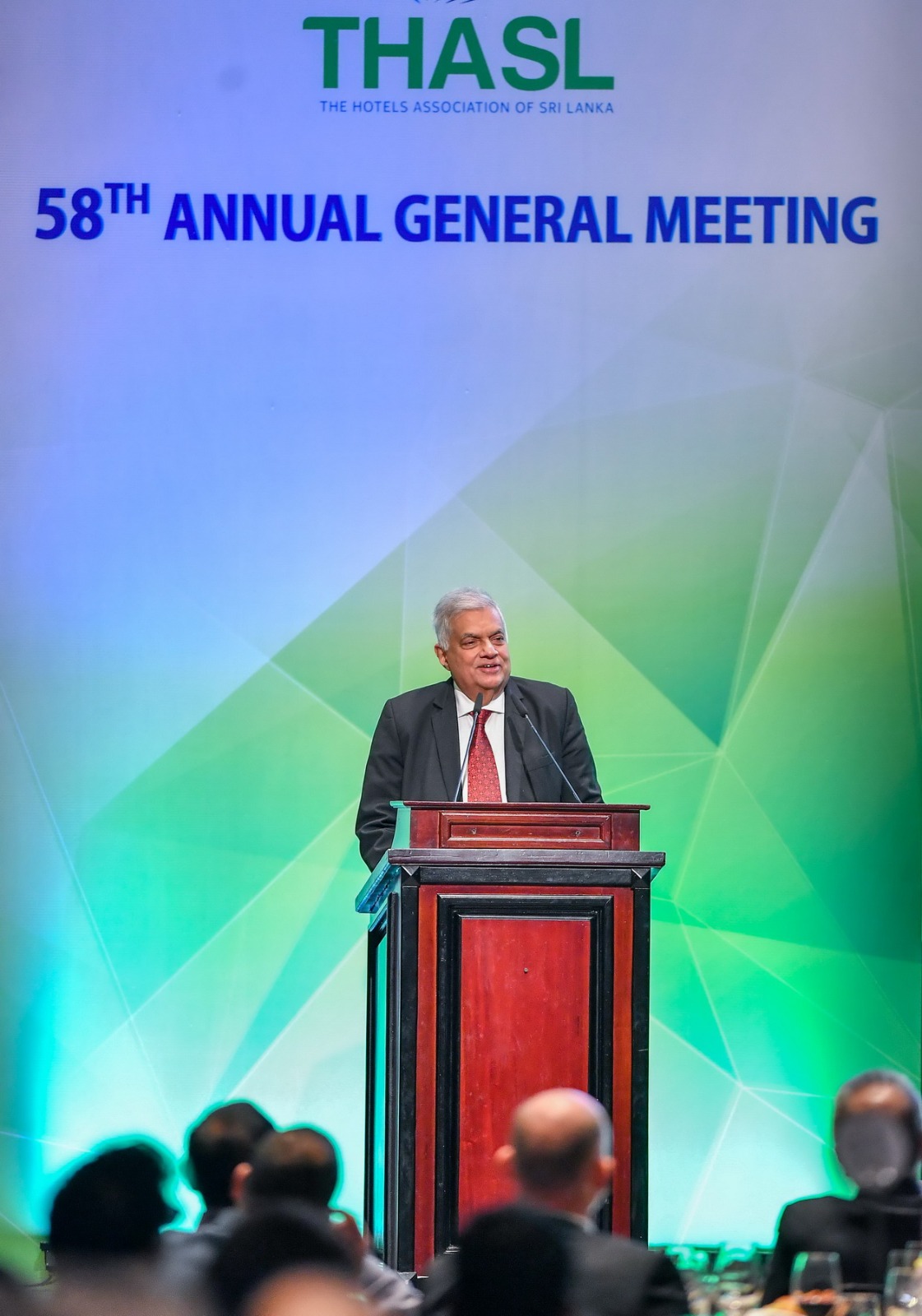
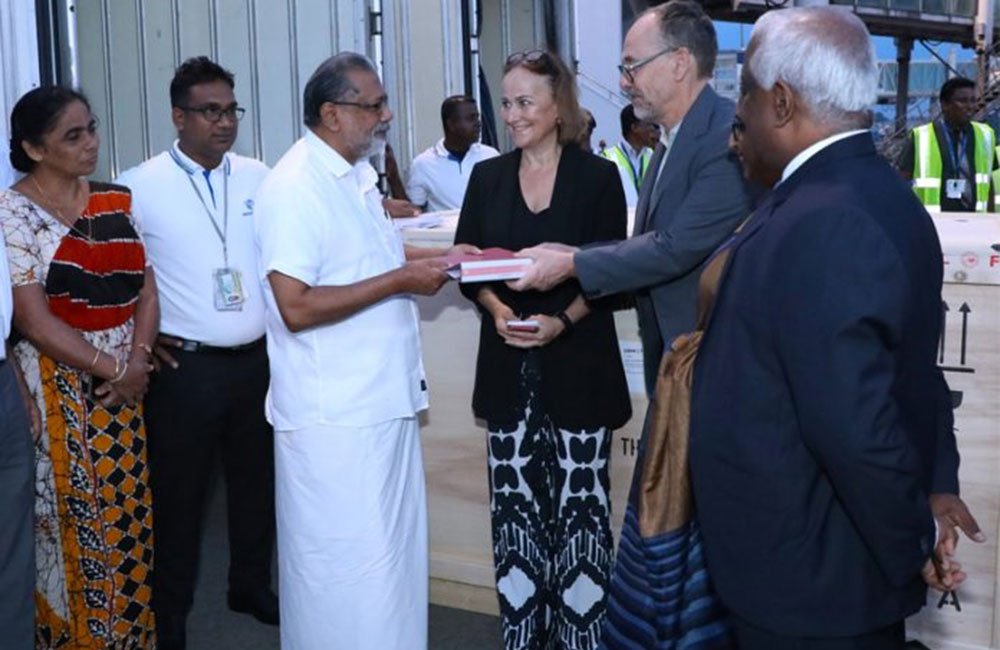
Netherlands returns six looted colonial-era artefacts to Sri Lanka
The Netherlands has returned six Sri Lankan colonial-era artefacts looted by the Dutch to Sri Lanka after more than 200 years.
The six historical objects – the Lewke’s cannon, a Golden Kasthane, a Silver Kasthane, a Sinhalese Knife and two Guns – were ceremoniously accepted by Minister Vidura Wickremanayake at the Bandaranaike International Airport (BIA) in Katunayake this morning (29).
These items will be on public display at the National Museum in Colombo from 05 December, the Embassy of the Netherlands said.
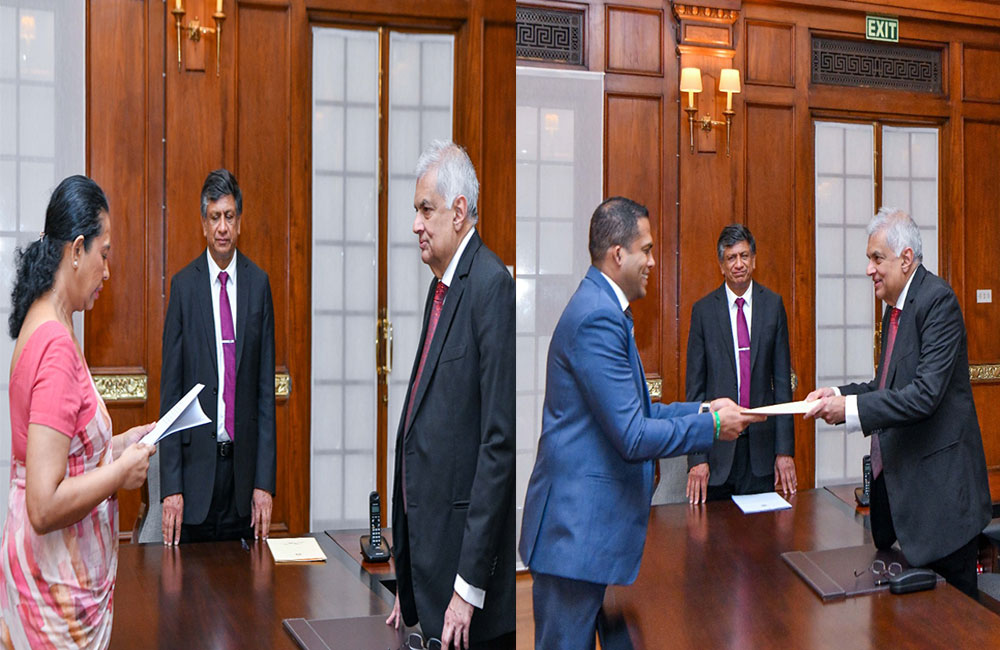
Harin and Pavithra get Roshan's ministries
Minister Harin Fernando was sworn in as the new Minister of Sports and Youth Affairs in the presence of President Ranil Wickremesinghe at the President's Office on Monday (27).
In addition, Pavithra Wanniarachchi sworn in as the Minister of Irrigation before President Ranil Wickremesinghe.
These positions were previously held by Roshan Ranasinghe, and the President removed Roshan Ranasinghe from the portfolios of Minister of Sports & Youth Affairs, and Minister of Irrigation, earlier in the day.
Sri Lankan President Ranil Wickremesinghe had handed over a letter to Roshan Ranasinghe noting that the latter had been removed from the portfolios of Minister of Sports & Youth Affairs, and Minister of Irrigation, with immediate effect, during the cabinet meeting that took place in Parliament.
The letter notes that the removal was done in accordance with the powers vested with the President as per article 47 (3) (a) of the constitution.
The article says "A Minister of the Cabinet of Ministers, a Minister who is not a member of the Cabinet of Ministers and a Deputy Minister, shall continue to hold office throughout the period during which the Cabinet of Ministers continues to function under the provisions of the Constitution unless he is removed from office under the hand of the President in consultation with the Prime Minister."
After he was removed as a Minister, Roshan Ranasinghe visited the Sports Ministry and vacated the premises.
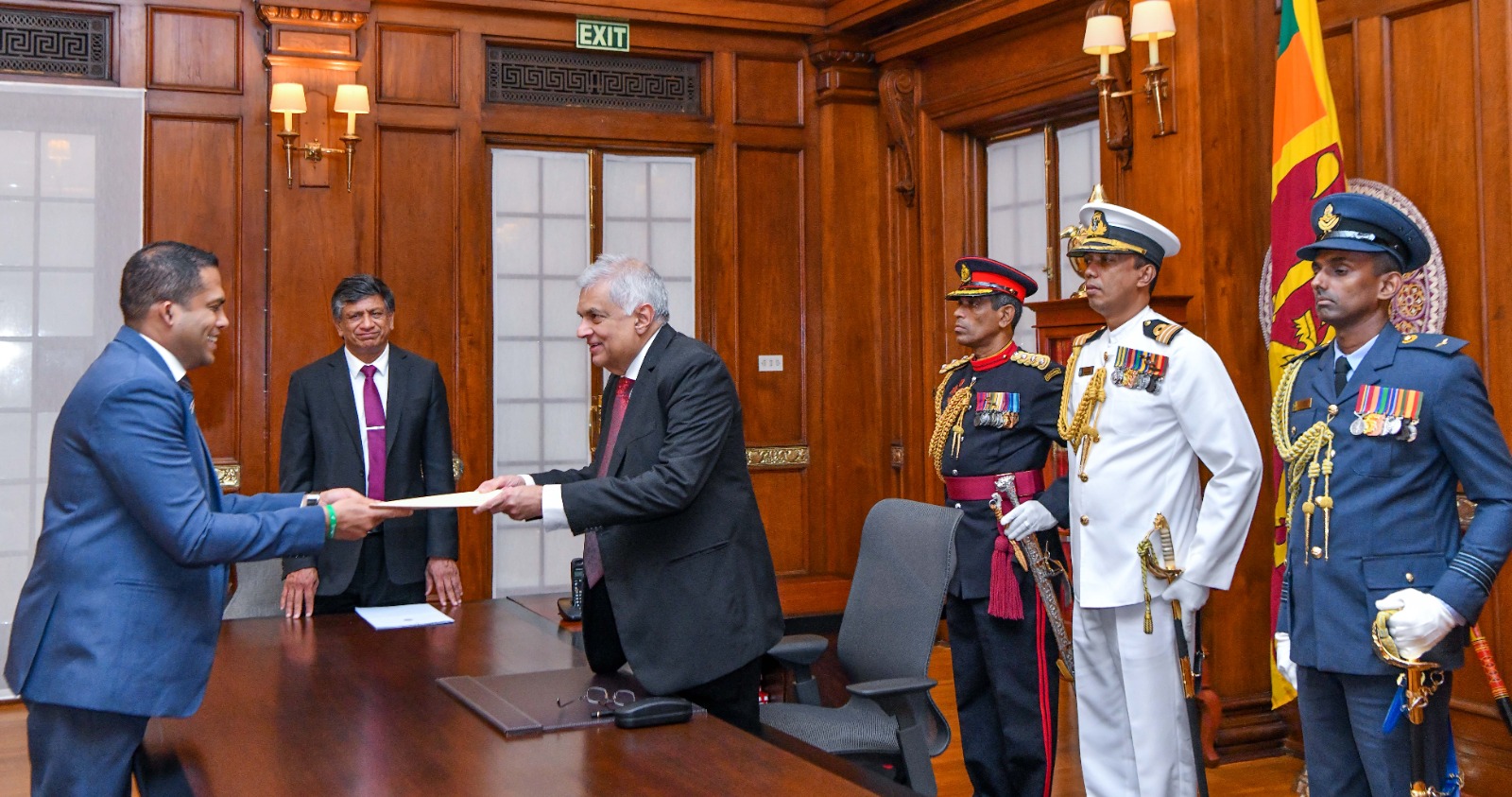
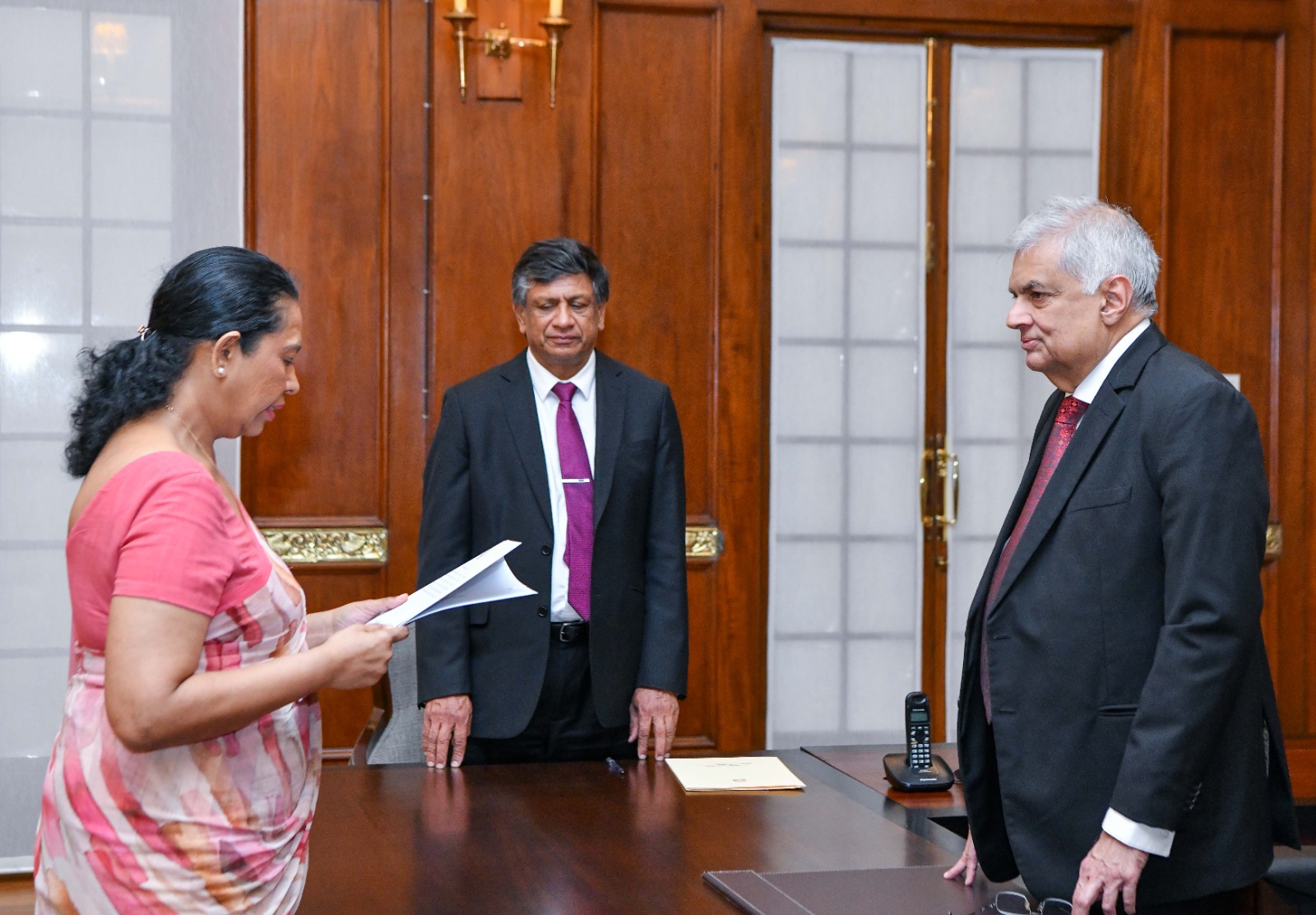
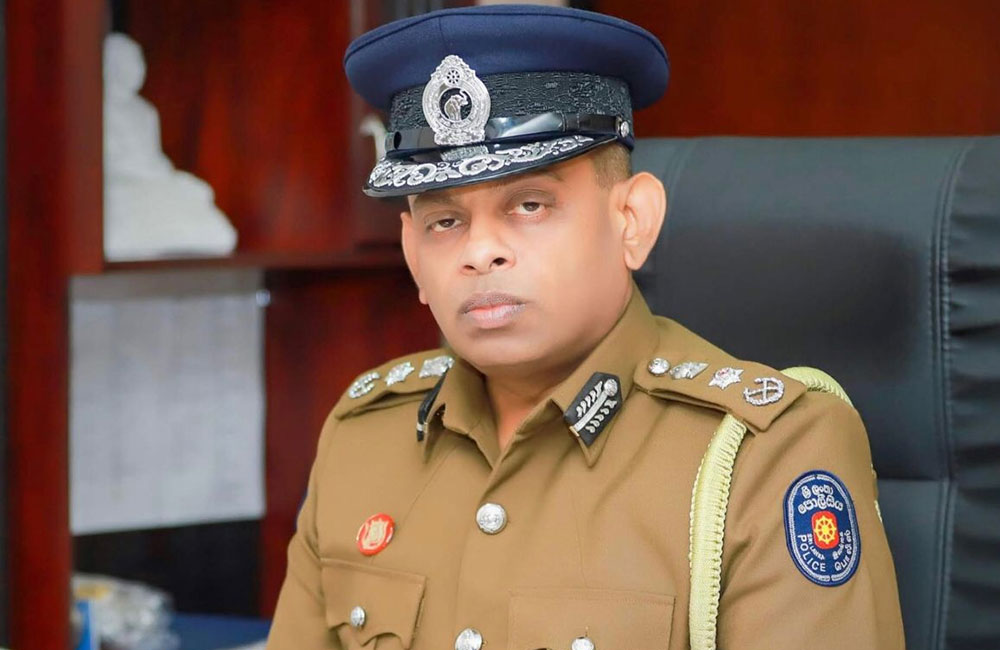
Deshabandu Tennakoon appointed as acting IGP
Deshabandu Tennakoon was this afternoon (29) appointed as the acting Inspector General Police.
President Ranil Wickremesinghe made the appointment five days after Chandana Wickramaratne retired as the police chief.
On that same day, the president reached agreement with public security minister Tiran Alles, senior presidential advisor Sagala Ratnayake and president’s secretary Saman Ekanayake to appoint Tennakoon to the position in an acting capacity.
Until this appointment, Tennakoon served as senior DIG in charge of the western province.
After receiving his education from Nalanda College, Colombo, he graduated from the University of Kelaniya.
He joined the police department on 23 February 1998 as an ASP, and promoted to the rank of SDIG on 20 November 2019.
Tennakoon is due to retire on 07 March 2032.
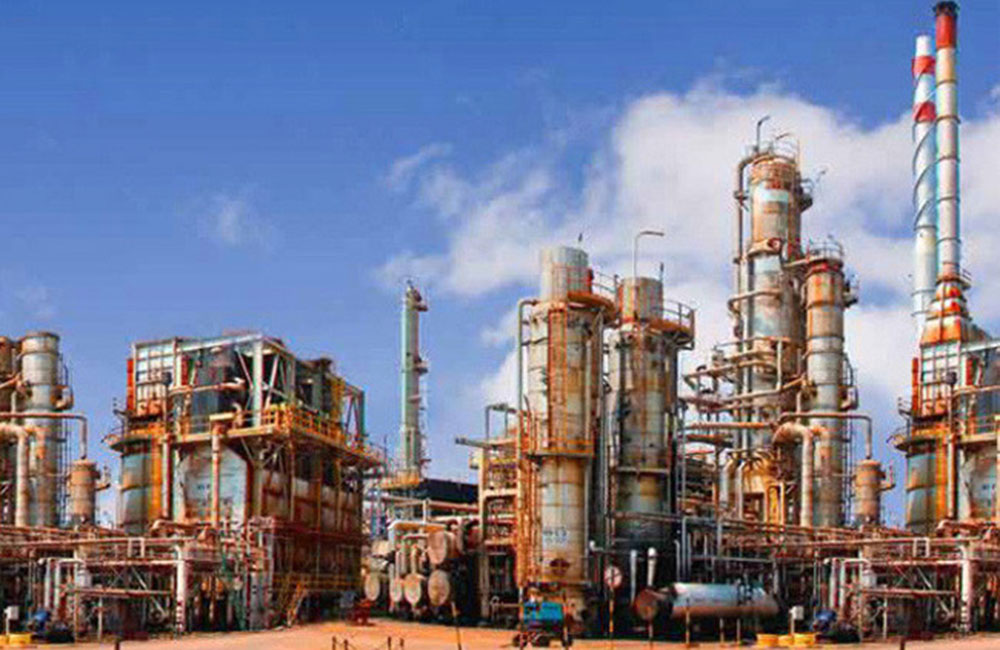
SINOPEC gets Hambantota Refinery contract
Sri Lanka's Cabinet has given the green light to award China's SINOPEC the contract to establish a new petroleum refinery and associated product processing center in Hambantota.
Minister of Power and Energy Kanchana Wijesekera posted on X (formerly known as Twitter), the decision that was taken by the cabinet.
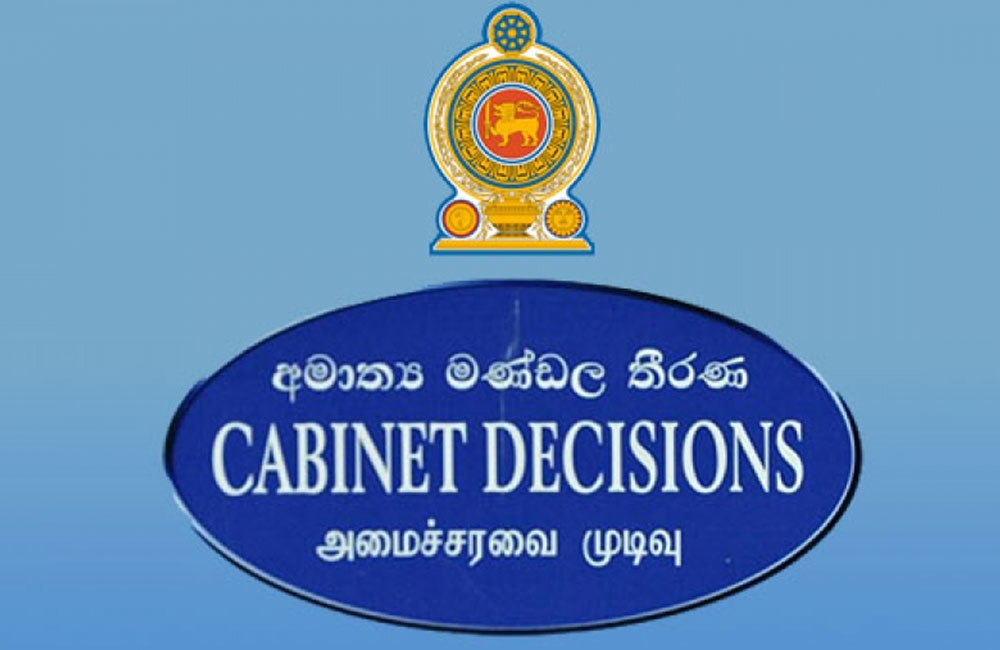
Registration of specialist physicians : New Cabinet decision
The Cabinet of Ministers has decided to grant approval to prepare a draft bill for the amendment of Sri Lanka’s Medical Ordinance with regard to the registration of specialist physicians.
The resolution to amend Medical Ordinance No. 26 of 1927 in order to revise the provisions relevant to the registration of specialist physicians proposed by the then Minister of Health was taken into consideration by the Cabinet in August this year.
At the meeting, it was decided to direct the matter to an officers’ committee headed by the Secretary to the Prime Minister in order to submit appropriate recommendations by further studying the proposed amendments.
Accordingly, the Cabinet granted approval to instruct the Legal Draftsman to prepare a draft bill for the amendment of the Medical Ordinance based on recommendations mentioned in the report handed over by the said officers’ committee.
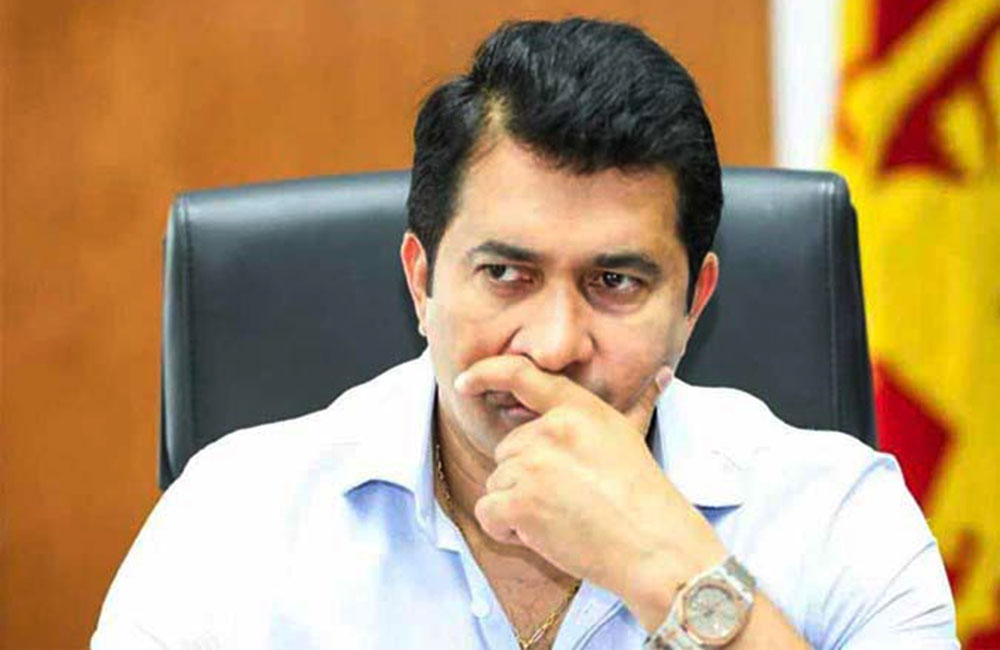
Roshan Ranasinghe sacked
Roshan Ranasinghe says he has been removed from his positions as the Minister of Sports and Youth Affairs and Minister of Irrigation Roshan Ranasinghe said that he has been stripped of his portfolios.
The SLPP lawmaker said that he received a letter from President Ranil Wickremesinghe informing him that he has been removed from all his ministerial portfolios with immediate effect.
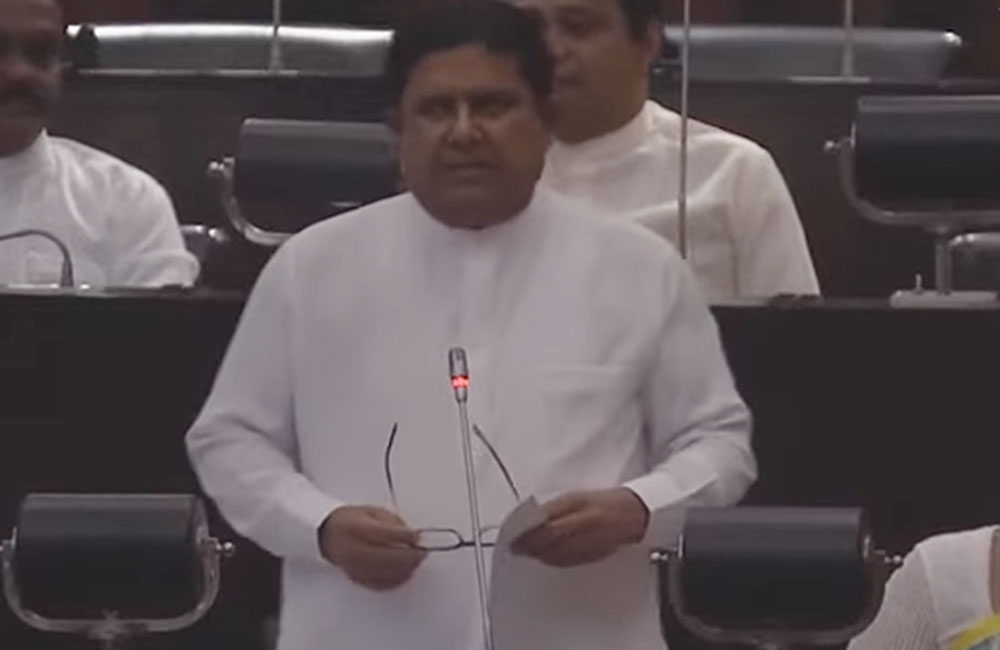
Wajira reveals J.R.’s prediction about Premadasa, Lalith & Gamini
First executive president J.R. Jayewardene had told Wajira Abeywardena during the period R. Premadasa had clashed with Lalith Athulathmudali and Gamini Dissanayake that all three of them would pay with their lives, the MP claimed in parliament.
Pointing to that, Abeywardena said politics should be devoid of enmities.
When Athulathmudali died, the finger was pointed at Premadasa, but no accusing finger was pointed when Premadasa himself and Dissanayake too, lost their lives, said the MP during the committee stage debate on the votes of the ministry of public administration.
Enmities cost them their lives and if we too, do that now, groups outside the country would profit from that, he said.
Also speaking here, PM Dinesh Gunawardena called for a disciplined cabinet in reference to the removal of Roshan Ranasinghe.
“The obligation is there to follow that principle if parliamentary democracy is to be taken forward,” he said.
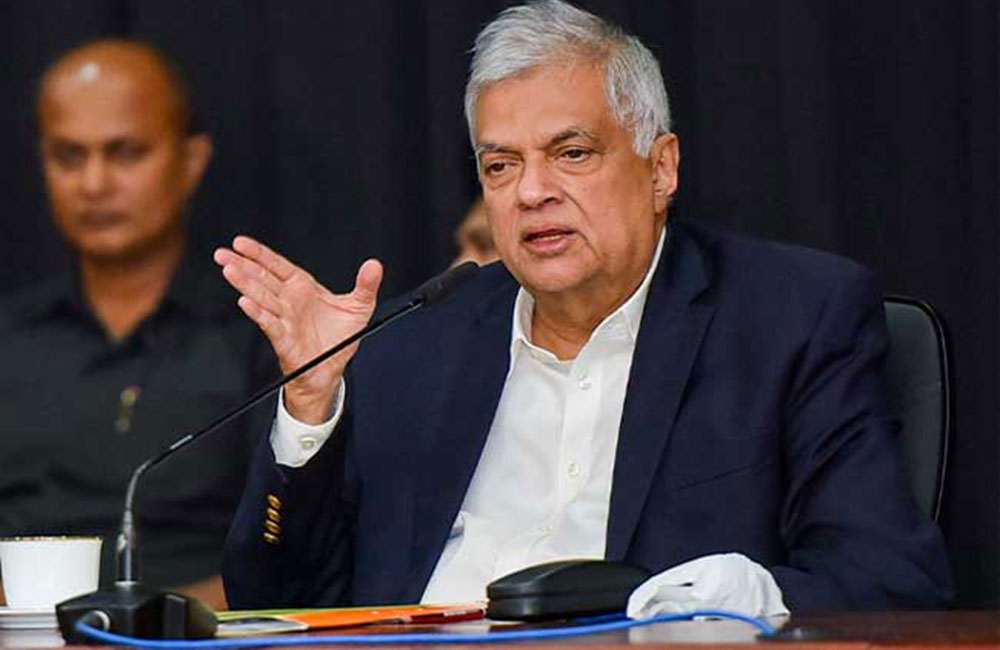
Country is built not for us but for future generations - President
The country is built not for us but for future generations. The best way for the opposition to gain power is to unite with the government, said President Ranil Wickremesinghe.
If the opposition had supported the government during the economic crisis, the country could have been saved from bankruptcy a few months ago.
President Wickremesinghe emphasized that the nation is designed with a long-term perspective, focusing on the well-being of future generations rather than the present.
Nonetheless, the President expressed concern that the opposition seems primarily self-oriented. He suggested that the most effective route for them to attain power is through collaboration with the government. By actively participating and leveraging the experience gained from such collaboration, the opposition can strive to attain governmental authority in the upcoming election, contributing to the overall progress of the nation.
In a meeting convened yesterday afternoon (25), President Ranil Wickremesinghe addressed the Political Authority in Matale District at the Matale District Secretariat Auditorium.
The gathering included representatives from the Matale District Sri Lanka Podujana Peramuna, United National Party and Labour Congress, all of whom engaged in discussions with the President concerning the challenges they currently encounter.
During the discourse, President Wickremesinghe not only acknowledged the issues raised by the attendees but also took proactive measures to offer immediate solutions to specific problems.
In response to the recent economic challenges, President Ranil Wickremesinghe acknowledged that, in the absence of any immediate volunteers to steer the country, he assumed responsibility at the behest of the ruling party. Expressing gratitude, the President recalled the unwavering support extended to him by all political parties across the nation.
President Wickremesinghe highlighted that, under his leadership, the nation successfully navigated toward the correct course, achieving economic stability.
Despite uncertainty from opposition politicians who asserted a prolonged recovery period of five years, the President emphasized that the country was effectively rescued from the brink of economic crisis within a remarkably brief span of 16 months.
Additionally, the President underscored that had the opposition politicians rallied behind the government during the economic crisis, the nation could have averted bankruptcy several months prior.
Despite this, local political authorities commended the initiatives spearheaded by President Ranil Wickremesinghe, expressing a commitment to extend unwavering support to the program in the future.
President Ranil Wickremesinghe offered additional remarks, stating,
“In 2021, our nation encountered an economic problem, and by 2022, it had evolved into a full-blown crisis.
During this period, all facets of the country experienced a standstill, resulting in financial losses and diminished income. Simultaneously, developmental projects ground to a halt, compounded by the fact that being a financially bankrupt nation, we lost foreign aid.
During that challenging period, no individuals stepped forward to shoulder the responsibility for the country. In response, I willingly assumed that responsibility, consciously distancing myself from those who merely claimed to possess solutions for the nation’s issues.
Collaboration with groups across the political spectrum, irrespective of affiliations, played a pivotal role in navigating this endeavour.
Upon assuming this responsibility, numerous individuals predicted a four to five-year timeline for the reconstruction of the ailing economy. Facing such uncertainty, a significant number even opted to leave the country, convinced that a viable solution was indefinite.
Presently, active negotiations are underway with the International Monetary Fund (IMF) and other nations. With these on-going efforts, it is anticipated that by the year’s end, the nation will no longer bear the burden of the bankruptcy label.
The comprehensive initiatives undertaken thus far have spanned a period of 16 months. Notably, had the opposition extended their support, this endeavour could have been expedited by an additional two to three months.
Our journey has been marked by challenges, yet we have achieved significant milestones. Commencing next year, we have successfully implemented an allowance of Rs. 10,000 for government employees, a feat that many deemed doubtful. Furthermore, similar to the enhancement in ‘Samurdhi’ benefits, the ‘Aswesuma’ allowance has seen a threefold increase. These initiatives were undertaken with the intention of providing support for the advancement of small and medium-scale projects.
However, my commitment to alleviating the hardships faced by the people extends beyond monetary support.
Recognizing the country’s agricultural sector as a cornerstone, a substantial modernization program has been conceived.
The inaugural phase of this modernization initiative centres on providing ownership, with plans to commence the distribution of free deeds to individuals holding permits under the Land Ordinance Act in February.
I have directed the coordination of these activities to the District Development Committees, seeking the collective support of all for the success of this initiative.
This program represents an achievement that transcends mere words; it required collaborative effort and collective dedication to transform ideas into action.
Our paramount responsibility is to forge a promising future for the youth of our nation, crafting a legacy not for our immediate gratification but for the prosperity of generations to come.
Our collective mission is to construct a nation that stands as a testament to our commitment to the well-being of our children and their children.
However, it is disheartening that the opposition seems fixated on self-interest, solely preoccupied with the pursuit of power.
I convey to the opposition that the most effective route to wielding power lies in collaborative efforts with our administration. I urge them to consider joining forces with us, leveraging the wealth of experience we have accumulated.
By aligning with our shared goals and vision, they can gain valuable insights that will serve them well in their pursuit of leadership.
Let us transcend political divides and work collectively to advance the nation. Together, we can move forward, building a stronger and more prosperous country for all.
The event was attended by notable figures such as State Minister for Defense Pramitha Bandara Thennakoone, State Minister for Sports and Youth Affairs Rohana Dissanayake, Central Province Governor Lalith U. Gamage, Member of Parliament Janaka Bandara Thennakoone, Matale District Coordination Committee Chairman Member of Parliament Nalaka Bandara Kottegoda, Secretary to the President Saman Ekanayake and Central Provincial Council Chairman D. Nimalasiri.
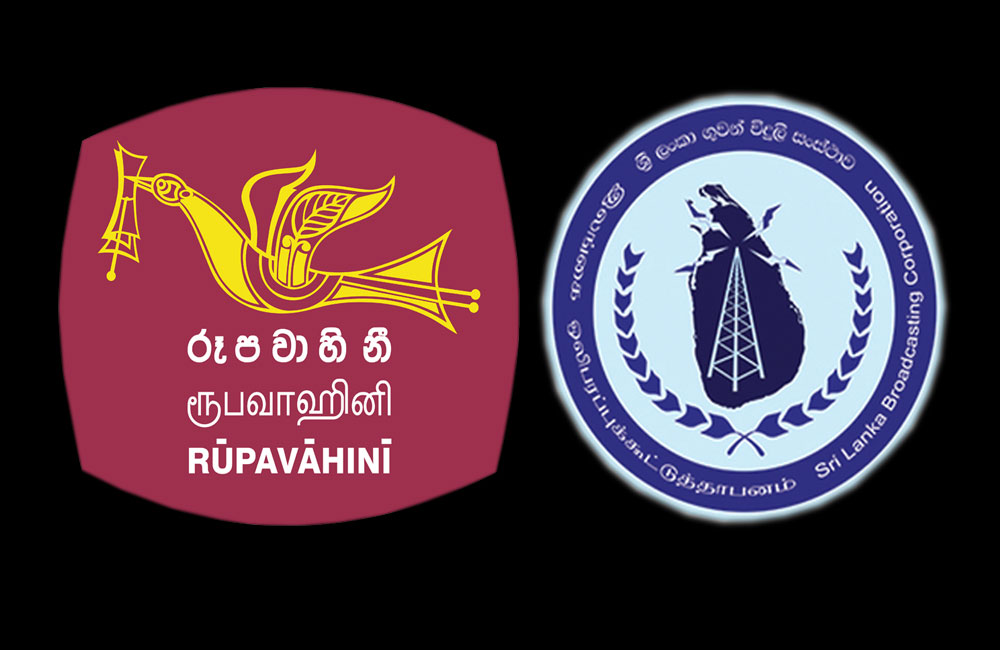
SLRC and SLBC to be converted into a public company – Bandula
It was disclosed at the Ministerial Consultative Committee on Mass Media that the Sri Lanka Rupavahini Corporation (SLRC) and the Sri Lanka Broadcasting Corporation (SLBC) continue to incur losses.
This was revealed when the relevant committee met in Parliament on Thursday (Nov. 23) under the Chairmanship of the Minister of Transport and Highways and Minister of Mass Media Dr.Bandula Gunawardana.
Presenting statistics from 2015, the Chair pointed out how these two channels have made losses, the Parliamentary Communications Department said in a statement.
Accordingly, the Chair pointed out that the Sri Lanka Rupavahini Corporation has made a loss of 277 million rupees in the year 2023 and the Sri Lanka Broadcasting Corporation has made a loss of 457 million rupees in the year 2023.
Pointing out that it is difficult for the Treasury to provide funds for these channels, the Chair stated that there are plans to convert the Sri Lanka Rupavahini Corporation and the Sri Lanka Broadcasting Corporation into a public company. Accordingly, the Committee Chair further commented that the Cabinet Ministers have decided to appoint a committee to take further action, it added.
It was expressed in the committee that the state media does not provide enough publicity for the various development projects implemented by the government. The Chairman emphasized that public media should broadcast the inconveniences of the public who are affected by various dilapidated buildings, roads, bridges etc. as well as inform the public about the facilities that have been provided to the public following the development.
The Chair instructed the Sri Lanka Press Council to prepare a report on the measures that can be taken to regulate the propaganda activities carried out by the media in a way that harms the social culture and personal health and give it to the Committee.
State Ministers Shantha Bandara, Janaka Wakkumbura, Members of Parliament Velu Kumar, (Prof.) Charitha Herath, D. B. Herath, Sanjeeva Edirimanna, Gunathilaka Rajapaksha, Sudath Manjula, were present at the Committee meeting held, according to the Parliamentary Communications Department.
(Ada Derana)
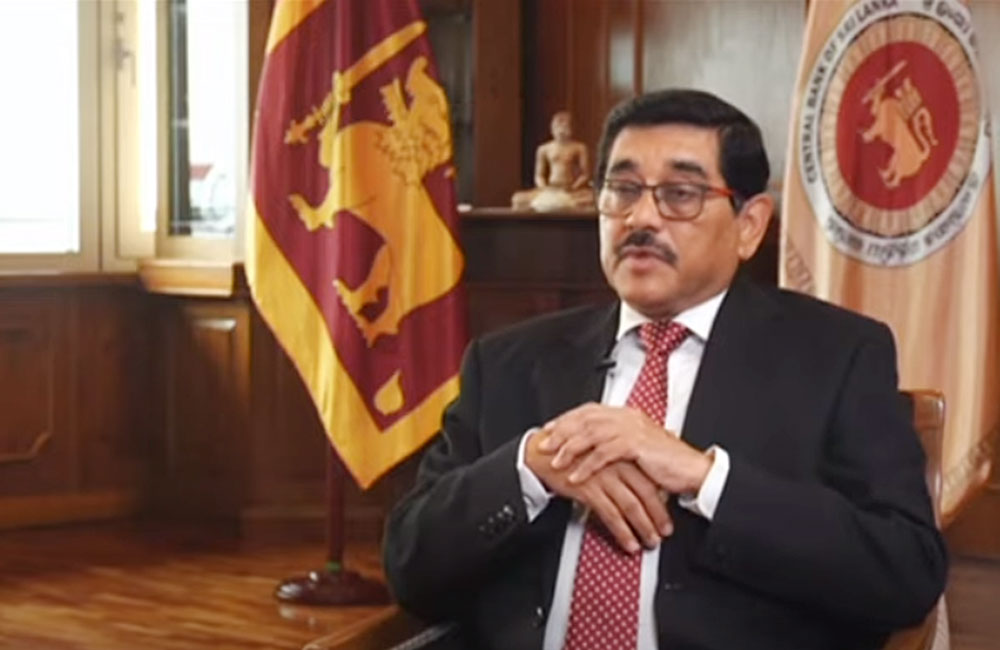
IMF program will be approved in December - CBSL Chief
Sri Lanka's Central Bank Chief is positive that the country will be able to get its IMF program approved in December 2023.
"We will be able to get the IMF program approved within the month of December. We are making good progress, and what is required are assurances from the official bilateral creditors, that is both the OCC (creditor committee) and the Chinese Exim Bank," said Dr. Nandala Weerasinghe during a briefing at the Central Bank on Friday.
He said that following the first review and the approval, additional flows from ADB, World Bank, and IMF Budget Support would help the government with better financing measures.
China's Separate Approach:
China's separate approach to Sri Lanka’s debt treatment 'has made life difficult', said the Ranil Wickremesinghe, the President of the island nation of 22 million people.
Speaking to India's FirstPost, Wickremesinghe said that Sri Lanka's economy is not out of the woods yet.
Noting the China is the largest bilateral creditor to Sri Lanka, the President said that it is the international Sovereign bonds held by private creditors that are the biggest creditors.
"China has been in it separately, we negotiate with them separately. This has nothing to do with Sri Lanka or any other country. They are not satisfied with the terms they are getting from the IMF and the World Bank, they feel that they should have a bigger role to play in the IMF so they've decided to opt out of it and they're going separately. It's making life more difficult for all of us who are in debt. But this is the reason. It's something that has to be sorted out by the big boys," elaborated Wickremesinghe.
He said that China is sending a message to the IMF and others so it is upto them to sort it.
The Export-Import Bank of China reached a preliminary agreement with Sri Lanka in September on the disposal of China-related debts.
The agreement in principle covers approximately USD 4.2bn of outstanding debt. It constitutes a key step towards restoring Sri Lanka's long-term debt sustainability and will pave the way to a prompt economic recovery.
‘We are doing what we can to help Sri Lanka’
China said that it is closely following the difficulties and challenges that Sri Lanka is facing, and said that it is doing what it can to assist the economic and social development of the island nation.
China's Foreign Ministry Spokesperson Wang Wenbin speaking to reporters, said that since last year, China’s relevant financial institutions have been in close touch with Sri Lanka on the debt issue involving China, engaged in active bilateral consultations, and provided a financing support document to Sri Lanka in a timely manner to help it obtain loans from the IMF.
He said that Chinese financial institution has taken part in all the creditors’ meetings as an observer and maintained friendly communication with other creditors to share with them the progress of the debt treatment.
US wants China to share debt restructuring plan
In early November, US Ambassador to Sri Lanka Julie Chung said that the Chinese Exim Bank restructuring proposal with Sri lanka should be shared with the other creditors.
She was speaking exclusively on 'The People's Plaform' program on News 1st, and said that the US is waiting on China to share the debt restructuring proposal that it pur forward via the Chinese Export and Import Bank.
"We hope that there is an equal, comparable approach by all creditors," she said.
The US Ambassdor said that with the proposal made available Sri Lanka can move forward with the IMF restructuring and then be able to address some of its macro-economic policies and governance issues of the past.
Page 211 of 658